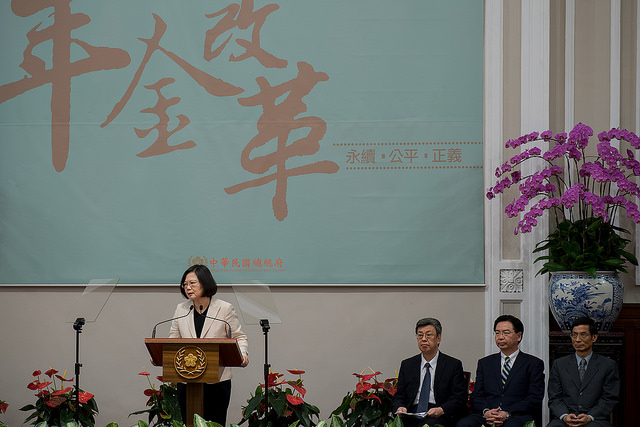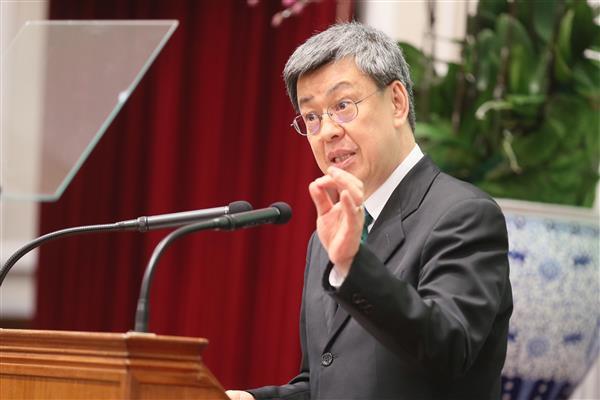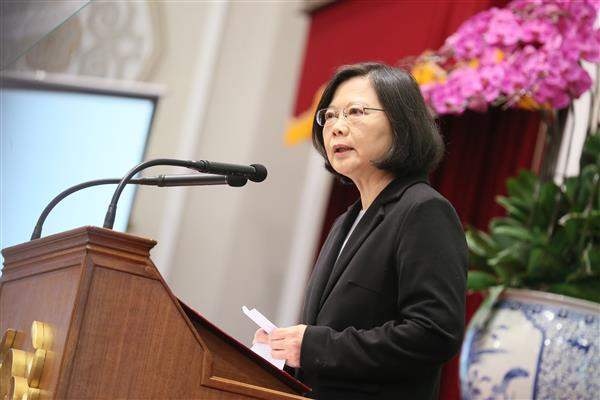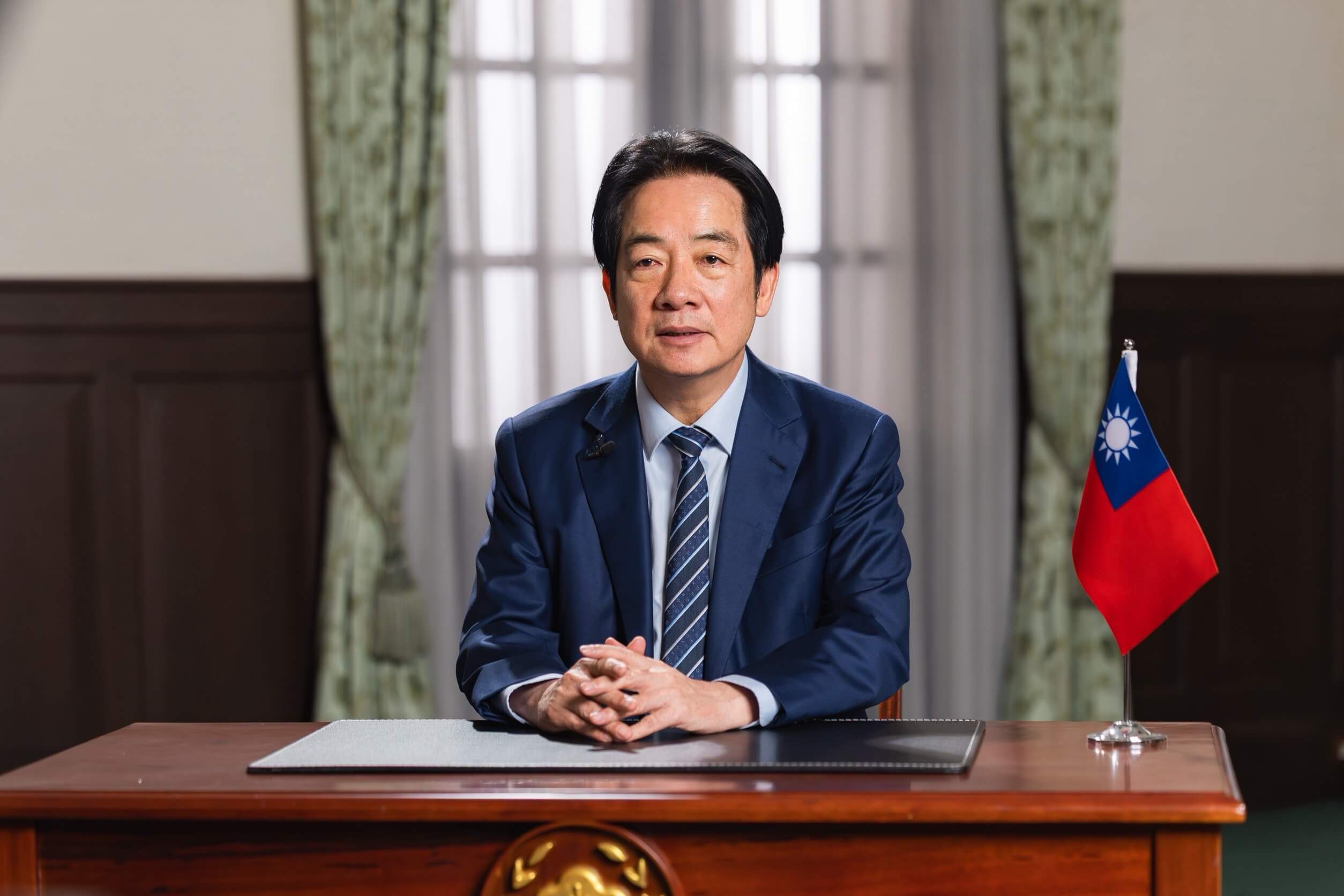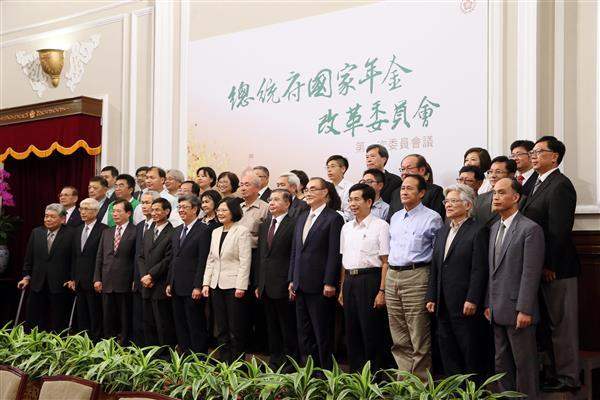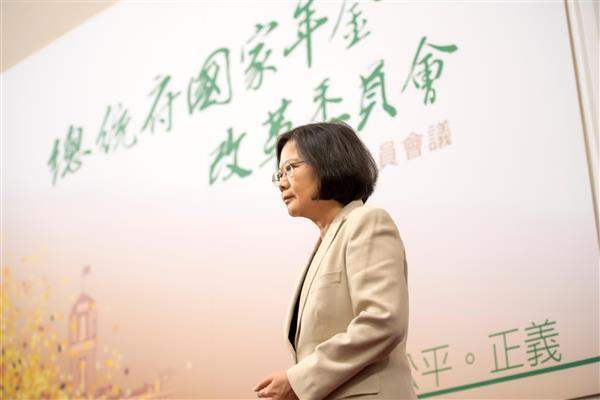News & activities
 News releases
News releases
On the afternoon of June 23, President Tsai Ing-wen attended the first meeting of the Office of the President's Pension Reform Committee. The president emphasized that the need for reform of the national pension system is so urgent that "failure to act now will be regretted immediately." She also expressed hope that the post-reform pension system is stable and sustainable, so that the pension system can be an important part of the social safety net. That is the only way to put people at ease and achieve social cohesion.
The following is the full text of the president's speech:
The Office of the President's Pension Reform Committee is meeting today for the very first time, so I want to make a point of coming here to give my regards to all of you. I also want to announce to society that our government's pension reform committee is formally commencing its operations today.
Various surveys have shown that the nation's pension system is one of the issues that the people of Taiwan are most concerned about. Structural changes, both demographic and industrial, are putting our pension system at risk of bankruptcy. Worries about financial security after retirement are very upsetting for a lot of people. The need for pension system reform is one of the most pressing issues we now face.
I've said before that our administration is here to solve problems. Now, we must resolve the problems besetting our pension system. With some reforms, "failure to act now will be regretted later." But in this case, the need for reform of the national pension system is so urgent that "failure to act now will be regretted immediately."
Taiwan's pension system problems have a long history plagued by poor financial planning. Now, aging demographics and a falling birth rate are causing funding shortfalls and generating huge deficits that threaten to bankrupt the system. On top of that, the lack of comprehensive planning means that citizens working in some sectors receive less generous retirement benefits than others simply because of their employment category, despite the fact that they've worked just as hard as anyone else and contributed just as much to society. The pension system should ensure basic security for all citizens; it should not cause some members of the public to worry about their old-age financial security after a lifetime of hard work.
These problems have arisen because the original design of the system was not comprehensive enough, resulting in funding that is not sufficiently stable and discrepancies in the benefits received by retirees from different employment categories. This is a burden left over from the past. We are faced with systemic problems, not with problems that can be attributed to individuals. The point of pension reform is to resolve these problems so that all senior citizens can be adequately protected by our social safety net.
Previous administrations have attempted reform on multiple occasions, but their efforts all came to naught. We've looked into the reasons, and have concluded that it was because pension reform affects the interests of the public. If the government acts unilaterally in pushing for reform, success is unlikely. This time around, therefore, we've adopted a bottom-up approach that welcomes expanded participation. We've established a national pension reform committee to serve as a platform for dialogue that will afford people from every segment of society opportunities to express their views via representatives.
These principles guided the effort to establish the Office of the President's Pension Reform Committee. The committee members here today were all recommended by different occupational associations and broadly vetted prior to their selection. I would like to offer my thanks to each committee member. You've agreed to undertake this work because you appreciate the urgency need for reform. It is your participation that ensures a robust foundation for the reform effort.
However, I want to stress that democratic procedure must be observed at your meetings. Reform must move forward in a sound manner. We must proceed one step at a time. At the same time, though, we have a responsibility to seize the historic opportunity before us by acting decisively to achieve a sustainable pension system for Taiwan.
To ensure the success of reform, there are a few principles and objectives that we will have to keep in mind as we proceed. First, in terms of the system's design, we must take into consideration both financial stability and what the people can afford. Second, while maintaining reasonable benefits, we must provide for the financial security of disadvantaged people. Third, to maintain social cohesion and avoid controversy, we must narrow the retirement benefits gap between different occupations. And fourth, during the course of reform we must abide by democratic principles and maintain transparency.
Another point of reform is to ensure that the post-reform pension system is stable and sustainable, so that the pension system can be an important part of the social safety net. That is the only way to put people at ease and achieve social cohesion.
It's extremely gratifying to see that all of the committee members have been able to take part in today's meeting. I fervently hope that we can all maintain unity. For the sake of future generations, we have a responsibility to do more. I ask all of you to support reform and work together to safeguard Taiwan's future by establishing a sustainable, fair, and just pension system.
And finally, I want to stress once again that an ideal pension reform must conform to the principles of equity. In seeking equality, we must also be appropriately tolerant of differences. I also want to stress once more that our purpose in pursuing pension system reform is to ensure the financial security of every senior citizen and the sustainability of the pension system.
